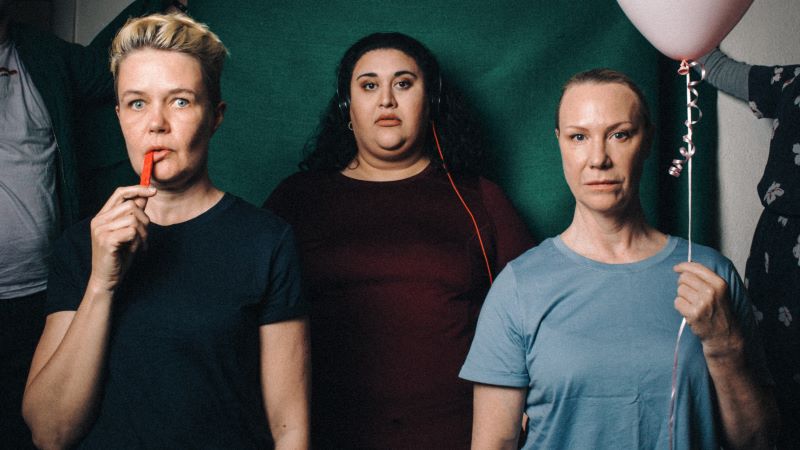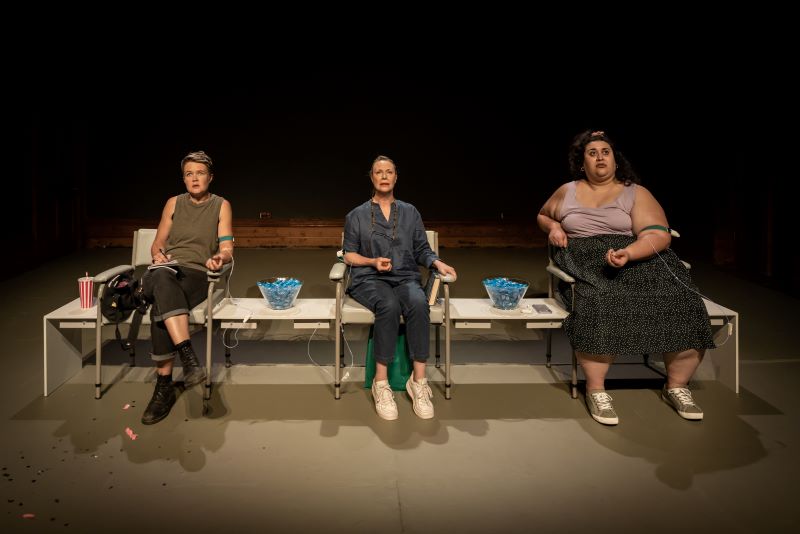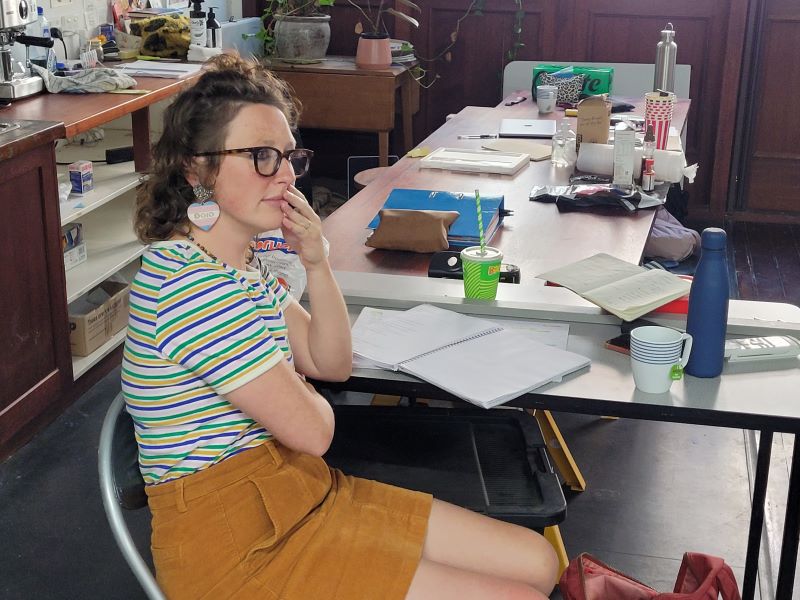The Grief Trilogy: VCA alum Liv Satchell's plays explore connection in the face of loss

Liv Satchell is a writer, theatre-maker, dramaturg and facilitator who graduated from the VCA in 2016. Building on the work she created for her Master of Directing for Performance seven years ago, she’s about to present The Grief Trilogy to Melbourne audiences at La Mama Theatre in March. We spoke to her about her work, its inspiration, and how she hopes it will enrich those who experience it.
Within six weeks of starting my Masters, my teacher Draf (Robert Draffin) had pulled me aside. He told me in no uncertain terms that I needed to accept the fact that I was a writer and that I should write my directing graduation project. That was all I needed – the gentle, firm push down a path that has now come to shape my entire practice.
This push was the seed for what would become The Grief Trilogy. My grad show - I sat and waited but you were gone too long - was the first play I’d written and directed. When it was shortlisted for a Fellowship that required me to pitch a new work, I started to imagine three thematically linked shows, each investigating transformational encounters between grieving strangers in public spaces.
Since then, I have been collaborating with a slowly growing ensemble to make the Trilogy’s other two works. The second play my sister feather was presented in 2018 at La Mama Courthouse. I wrote it for Emily Tomlins and VCA alum Belinda McClory, who play two estranged sisters who encounter each other, for the first time in 20 years, in a women’s prison visiting centre. The third play let bleeding girls lie was also written for Emily and Belinda, as well as VCA alum and recent star of Malthouse Theatre’s Looking for Alibrandi Chanella Macri. They play three strangers who happen to be donating blood next to each other during the first hour of live reporting of the Manchester Arena attack. Witnessing this coverage creates a grief-induced intimacy that allows them to open up to each other about their own private losses and find strength in their togetherness.

We’re now presenting these three plays together in their own three-week season in March at Courthouse, as part of the incredible Liz Jones’s last season as La Mama’s Artistic Director.
There are two truly amazing things about this. The first is that it is allowing us to return to I sat and waited but you were gone too long and apply to this very small, very humble grad show all the shared language, skills and history that we have gained since 2016, transforming it for its world premiere season to complete The Grief Trilogy.
The second is that rehearsing these plays alongside each other is allowing us to create a truly cohesive body of work; to have a conversation across the season about just what the transformative possibilities of grief and loss might be.

I’ve only just realised just how much of this work has been inspired by my grandmother’s experience of fleeing Europe as a 17-year-old Jewish refugee. She never spoke about what happened to her, and her silence left a huge hole in my Dad’s family. I can now see that these plays are what I wish she could have had. They are conversations that take place in public spaces between strangers – the temporary nature and anonymity of these encounters allow the characters involved to share their deepest losses and have them witnessed and acknowledged. There are no solutions to be had, but there’s solidarity, humour, kindness – intense joy even – in the recognition provided by these brief encounters and the transformative effect they have upon those involved.
We have all experienced great disruption and change since 2020. We have all experienced loss. As we emerge from the past three years, theatre needs to provide a reflective space that allows audiences to process what’s happened. This is the major objective of the Trilogy – its core theme is how community can transform grief and loss by processing it as a shared act. I’m hoping that presenting these three plays together will transform La Mama Courthouse into a civic space for audiences to explore this possibility together.
The Grief Trilogy plays are showing at La Mama from 1-19 March. Book tickets.